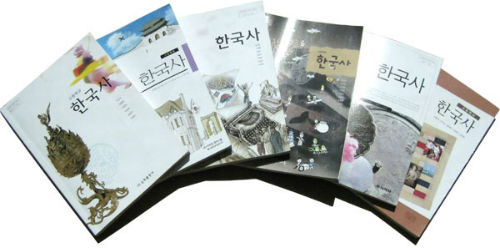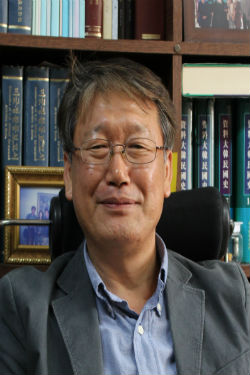한국의 역사교육

History, history education, and the school textbooks are indispensable to the constructions of human’s and their society’s identities. History, says David Lowenthal in The Past is a Foreign Country, is so essential to form “the identity” of the individual, the community, or the state, and to “strengthen [their] identity” that it could be said to be identity itself. Specifically, history education at school and its textbooks exert strong influence not only on students but also the society in the future, in that history education and the textbooks construct the identity of students who will compose a future society. Given this, history education and textbooks have to not only be based upon the past but also contain the demands from contemporary society and the vision of the world of the future.
Since the end of the 20th century, we have witnessed global cataclysm in terms of modern history. The fin de siècle saw the collapse of the communist world in Eastern Europe and Soviet Russia and the consequent end of the global Cold War. The progress of global history, bringing forth the globalization and de-territorialization around the world, promotes our critical reflection upon the last century in which the hot war and the cold war alternate with each other. Also, we are led to the thoughtful review of modernism, which, eager for the developments of such modern entities as class, the nation, or the state, dominated the imaginations of those living in the last century. Thus, now we’re walking in the utter confusion about what the modern world we live in is and also about what the world should be like.
This is true for the field of history education. Historical studies and history education in the modern era have developed themselves as modern sciences which have an objective: to construct the modern subject. Currently, however, historical studies and history education face disciplinary crisis of being shaken to the foundations by the turn-of-the-century globalization and de-territorialization which invalidate the fundamental basis of the two sciences, viz. national boundary in the senses of both population and space. The crisis is being much more aggravated by the latest situation brought forth by the recent authorization by South Korean education ministry of High School Textbook on Korean History written by so-called New Light authors and printed by Kyohaksa (Kyohaksa-version of Korean History). That is, the official endorsement of the Kyohaksa-version of Korean History, embitters the current situation pertaining to history education in South Korea.
Now, history education is carried out at the school by means of history textbooks controlled by the government. The Education ministry determines the frame of history education at schools and its contents by means of ‘the official criteria for writing history-textbooks’. The criteria, defining textbook editing and even history-writing itself, demands that Korean-history school textbooks should demonstrate the national legitimacy of the Republic of Korea (ROK) in terms of lineal developmentalism of the ‘Taehan Empire -> Provisional Government of Korea -> the ROK’. This demand, producing the distortion of contemporary Korean history and the erosion of rational, logical accounts, threatens both the writing of the past and the understanding of history. Moreover, the demand could exclude the past from History, meaning the history of the nation, for the purpose of securing the legitimacy of the ROK. These are the threats the contemporary official criteria imposes upon history itself and its education, and Korean society and the global world in the 21st century.
Despite the potential and/or actual problems of the criteria, recently published history textbooks have shown little improvement. This can be easily confirmed when we read six high school Korean-History textbooks published in 2011. It goes without saying that the textbooks narrate Korean history in terms of the nation and state, and contemporary Korean history with the ROK as the center. Nevertheless, the textbooks use as reference materials a variety of written materials such as excerpts from literature or personal diaries, or visual stuff such as ‘Massacre in Korea’ painted by Pablo Piccaso and ‘Chŏllima Campaign Poster’ produced by North Korean authorities. Also, they supply their readership with electronic sources of information, such as websites which are available to students’ wider and deeper understanding of Korean history. All these editions show students not only the various ways of writing history but also the potential historiographies while developing students’ potentials for the critical reading of history, and stimulating their imaginations of history.
The accomplishments contemporary history textbooks have achieved thus far are now being endangered by the Kyohaksa-version of Korean History and by socio-political forces backing up the textbook. Well known, the textbook narrates the contemporary history of Korea with the ROK as the center. The ROK-centered narration is geared to rationalize and justify, in the name of the development of the ROK and its fight against North Korean communism, ROK ruling elites’ past cooperation with Japanese colonialism, ex-ROK presidents’ authoritarian rule over South Korea and the atrocities inflicted upon South Koreans by the ROK. This purposeful account intends to instill conservative ideas into South Korean constituents’ minds for the purpose of laying the foundation for the transformation of conservative rule into a hegemonic one. To this end, conservative socio-political power groups and current administration support the Kyohaksa-version of Korean History. Given this, the recent developments caused by the Kyohaksa-version of Korean History cannot be concerned solely with history education. Rather than that, they are inseparably intertwined with the conservative politics of the current South Korean ruling party and president.
The politically inclined textbook de-historicizes not only the ROK but also the modern history of Korea by stammering, silencing, and even distorting historical facts contradictory to its own agenda of legitimizing the ROK and its ruling elites, past and present. As serious as, or more serious than the de-historicizing is that elitist history-writing contradicts the demand from the contemporary society that history education has to train democratic citizens for a democratic society, present or future. Also, the ROK-centered account nullifies history education for the future which requires mutual understanding between two Koreas, and moreover among all the peoples of the earth in order to build a peaceful and co-operative Korean peninsula and global village in this millennium. These problems call for our deep interests in the current hot issue on history textbooks and also in contemporary South Korean politics.


By Im Chong-myong, Professor, Department of History
임종명 사학과 교수
tribune1968@cnumedia.com

